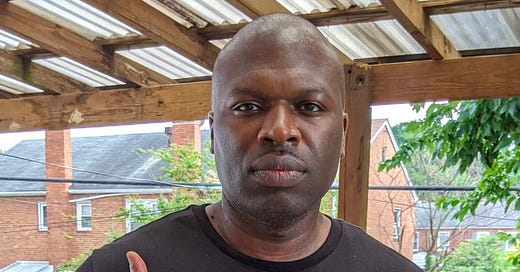Minority Mental Health Month Series
The Cost of Being Unseen
Where Purpose Meets Policy
🪡 Why This Matters
Mental health disparities are not new. But their neglect is normalized. Black and Brown communities have lived through systemic trauma—from redlining to medical apartheid to incarceration—and yet continue to be underserved, misdiagnosed, or left out of mental health funding.
The cost? Lives. Livelihoods. Generational wellbeing.
I’ve lived this reality. In my first book, Indisputable: The Story of a Favored Son, I open up about my own struggle with depression. At times, it felt like I was walking through life with a mask on—leading, achieving, serving—while silently battling anxiety and disconnection. Like many Black men, I was socialized to push through, to grind, to pray about it. But I reached a breaking point that forced me to seek help. That moment saved me. My healing didn’t make me weak—it made me whole. I’ve often found that when you can talk about the things that you are currently grappling with or have overcome, it gives other people permission to do the same.
Since that first experience with depression many years ago, I’ve been seeing a Black male psychologist as part of my regular self-care regimen, a choice that becomes even more urgent given the alarming data on suicide among men and boys. According to the CDC, men died by suicide nearly four times more often than women in 2022.
For Black men and boys, the numbers are especially concerning—suicide rates for Black youth increased by 60% from 2001 to 2017, and Black boys aged 5–12 are twice as likely to die by suicide compared to their white peers. It’s been a life-changing journey of healing, growth, and development—one that continues to shape how I show up as a father, husband, advocate, and human being.
Everyone’s journey is unique. And it’s not about comparing yourself to others. My self-care and soul care regimen involves breathwork, meditation, mindfulness, prayer, journaling, yoga, acupuncture, chiropractic care, deep-tissue massages, therapy, and executive coaching. The regimen was born out of necessity. Oftentimes, people ask me how I’m able to do what I do—being a husband, father, sibling, policy leader, researcher, writer, and speaker etc. The truth is: I’m intentional about taking care of myself. You can’t pour from an empty cup; and as one of my mentors always says, "You can’t be your best self, by yourself."
📚 Additional Context & Analysis
The U.S. mental health system was not built with racial equity in mind. According to HHS Office of Minority Health, Black adults are 20% more likely to experience serious mental health issues, yet only 1 in 3 who need mental health care receive it.
Diagnostic tools are biased. Provider training often lacks cultural humility. And trust is broken, especially after historical abuses like the Tuskegee Study or over-policing of mental health crises.
Counterargument: Haven’t we made progress with DEI and new funding?
My Response: Surface-level commitments without systems change won’t solve the problem. Federal block grants rarely require data disaggregation. DEI training doesn’t always translate to trauma-informed care.
🛠️ Policy & Practice Recommendations
Provide sustained funding and institutional support for culturally humble mental health practitioners within K-12 schools to ensure early and equitable access for students of color.
Train and certify more culturally humble and community-informed mental health practitioners, particularly from underrepresented racial and ethnic backgrounds.
Require disaggregated mental health outcome data by race and gender.
Expand community-defined evidence practices in state Medicaid plans.
Increase funding for BIPOC-led mental health organizations.
🔥 Take It Further
🌍 Share this post with your community
Dr. Okey K. Enyia
Scholar. Strategist. Advocate. Son.
#WherePurposeMeetsPolicy




